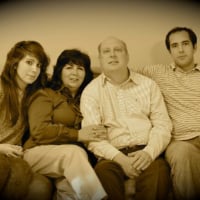I have a question about ancestors that deserted during the Civil War.
How did their family and the local town people feel about their desertion? What did they do? Did they stay in hiding? Did they just return? What were the local consequences? Was this shameful? This is a young man that recently arrived from Germany. He was sent to war and deserted on Christmas Day. 
According to Wikipedia: The Battle of Fredericksburg was fought December 11–15, 1862, in and around Fredericksburg, Virginia, in the Eastern Theater of the American Civil War. The combat, between the Union Army of the Potomac commanded by Maj. Gen. Ambrose E. Burnside and the Confederate Army of Northern Virginia under General Robert E. Lee, was part of the Union Army's futile frontal attacks on December 13 against entrenched Confederate defenders on the heights behind the city. It is remembered as one of the most one-sided battles of the war, with Union casualties more than twice as heavy as those suffered by the Confederates. A visitor to the battlefield described the battle to U.S. President Abraham Lincoln as a "butchery".
My non-Patriotic side says that my ancestor used his brains and left the battle before he died. President Lincoln's description of "butchery" plays heavy on my feelings.
What do you think? I am interested in the historical perspective of how people thought when young men deserted.
答え
-
I dont think you can generalize and stereotype
it could be drastically different from one area to another, one family to another, one situation to another
with the "butchery" that was the civil war - I have to imagine there was quite a bit of desertion as the war became something few could envision from the start.
0 -
if you look at this page:
http://yanceyfamilygenealogy.org/stories.htm
and go to the section on the Civil war - you can find perspectives from both Yankee and Confederate, black and white, bond and free
0 -
GREAT link, Dennis! That really gives the perspective Carolyn was looking for, I think!
0 -
Thanks Dennis for the link to the Encyclopedia Virginia. When I look around and see all the Covid Mask fighting it makes me wonder how the world handled disagreements about whether we should be at war. I do appreciate the insights that this page gave. I think that I will be doing some more research into this.

My ancestor, John C. Yetter, was 6 ft 1" tall at the age of 22. He had a dark complexion, black hair and black eyes. He was a farmer that had recently come to America from Germany. He was required to enlist in August 1962 for a three year period. He deserted on Christmas Day 1962 (or perhaps it was Dec. 1? See the attached image.) What is meant by the other dates that are mentioned?)
I think that if I was on the battlefield fighting for a country that I had just moved to, I would be thinking about my own life. When I saw my comrades dropping around me, regardless if they were from war injuries or illness or starvation, I think I would think about my own life again. Was he disloyal to his new country? Was he unwilling to sacrifice his life? Did he look around and say the odds were too great? I don't like war, but I guess it is necessary to fight for what we believe in. If he hadn't survived, my family line wouldn't exist. The odds weren't in my favor if John had stayed in the battlefield.
How did his parents feel? There are so many ways to look at this. I think that I would fight for a cause that I believed in, but I would also want to stay alive. I hope that I will stumble upon more records. I have researched his regiment to some degree.
Thank you for providing me with more information. I love seeing things through new eyes.
0
